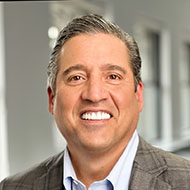A BlackBerry Milestone and the Road Ahead
They say that transformation is a journey, not a destination. And like any journey, successful transformations are marked by milestones along the way.
Today, I’m pleased to announce that BlackBerry has reached yet another milestone on its transformational journey, as we have completed the sale of our Cylance® endpoint security assets to global cybersecurity leader Arctic Wolf.
Our customers and partners will continue to benefit from the continuity of service provided by a global cybersecurity leader. Arctic Wolf benefits by incorporating Cylance’s advanced, AI-based endpoint protection into its open-XDR platform. And, as Arctic Wolf leverages their scale to continue to grow the Cylance business, BlackBerry will benefit as a reseller of the technology to our large government customers, and as a shareholder in a dynamic and growing company.
Truly, a win-win for all stakeholders.
40 Years of Security, Trust and Innovation
This past year at BlackBerry, we celebrated our 40th anniversary. And while the products and services we deliver today, and will continue to offer in the future, can’t be held in the palm of your hand, the core value of what we deliver to our customers hasn’t really changed that much.
Security, Trust and Innovation. It is the promise of BlackBerry, and this remains the same.
For those of you who have watched our evolution over the years, you know that BlackBerry has always been about more than just a handset – we deliver innovative, trusted, and secure solutions designed to accelerate the world around us.
From powering the safety-critical systems in your vehicle, to protecting governments around the world, to ensuring security and business continuity across regulated industries, to equipping the modern digital workforce – BlackBerry is there. And I can assure you, not only are we still around, but our software and services are transforming entire industries, just like our hardware did through BlackBerry® devices so many years ago.
BlackBerry QNX: The Intersection of Safety and Performance
Every new car is an incredible IoT creation, utilizing hundreds of millions of lines of code to deliver advanced driver assistance systems like adaptive cruise control, collision avoidance systems and lane-keep assist, as well as next-generation digital cockpit experiences, car chassis management, and a long list of other safety-critical functions.
For automakers, building today’s software-defined vehicles starts with QNX. It’s proven, trusted, and helps OEMs quickly bring innovative ideas to market. And in this space, we’re partnering with leading names like Nvidia, Qualcomm, AWS, Microsoft, and Intel – collaborating to drive the future of the Software-Defined Vehicle.
I am incredibly proud of the results our QNX team is driving. Currently, more than 255 million cars on the road rely on QNX. We have QNX design wins with all 10 of the top 10 global automakers and 24 of the 25 electric vehicle OEMs.
Our most advanced version of QNX, SDP 8.0, debuted during last year’s CES. It enables a transformational step forward in performance allowing OEMs to harness the power of next-generation silicon. And because QNX holds a unique position at the intersection of safety and performance, this business has untapped opportunities in adjacent industries that also require precise operations, including the medical robotics and industrial automation verticals. Increasing our focus on these verticals and enabling their success is part of our calling going forward.
Secure Communications: A Heritage of Mission Critical Expertise
BlackBerry brought secure and simple communications to the world with its devices, so maybe you won’t be surprised that BlackBerry has maintained this expertise as a leader in secure communications software and services. I am proud to say we offer the world’s most comprehensive, highly secure, and extensively certified portfolio for critical communications, purpose built to handle sensitive and even top secret level data.
From protecting mobile devices with BlackBerry® UEM, to advanced critical event management functionality with BlackBerry® AtHoc®, to offering the highest level of encryption across voice, video, and data with SecuSUITE®, our strong heritage of security, trust, and innovation shines through.
BlackBerry works with all G7 governments, a majority of the G20, 8 of the 10 largest global banks, and is the number one provider of Critical Event Management software to the U.S. Federal Government. We are trusted by NATO, the U.S. Department of Homeland Security, the Government of Canada and agencies around the world – to secure and deliver their critical and sensitive communications, even when underlying infrastructure is compromised.
BlackBerry Is There
For 40 years, BlackBerry has stood on the foundation of security, trust, and innovation. And while you may not always realize it, we remain a pervasive presence in the lives of people around the world.
Whether it’s powering your car's safety-critical systems, making sure you and your family arrive safely at your destination on your annual road trip – or securely enhancing your productivity at work through mobility apps, BlackBerry is there.
Your government or bank likely relies on BlackBerry to safeguard their most sensitive data and communications. And your business may deploy our industry-leading critical event management software to ensure the safety of your colleagues during a crisis.
Across it all, we are there.
And while BlackBerry may look different from the company you remember years ago, we are still powering the world around us, and ready for the next 40 years.

